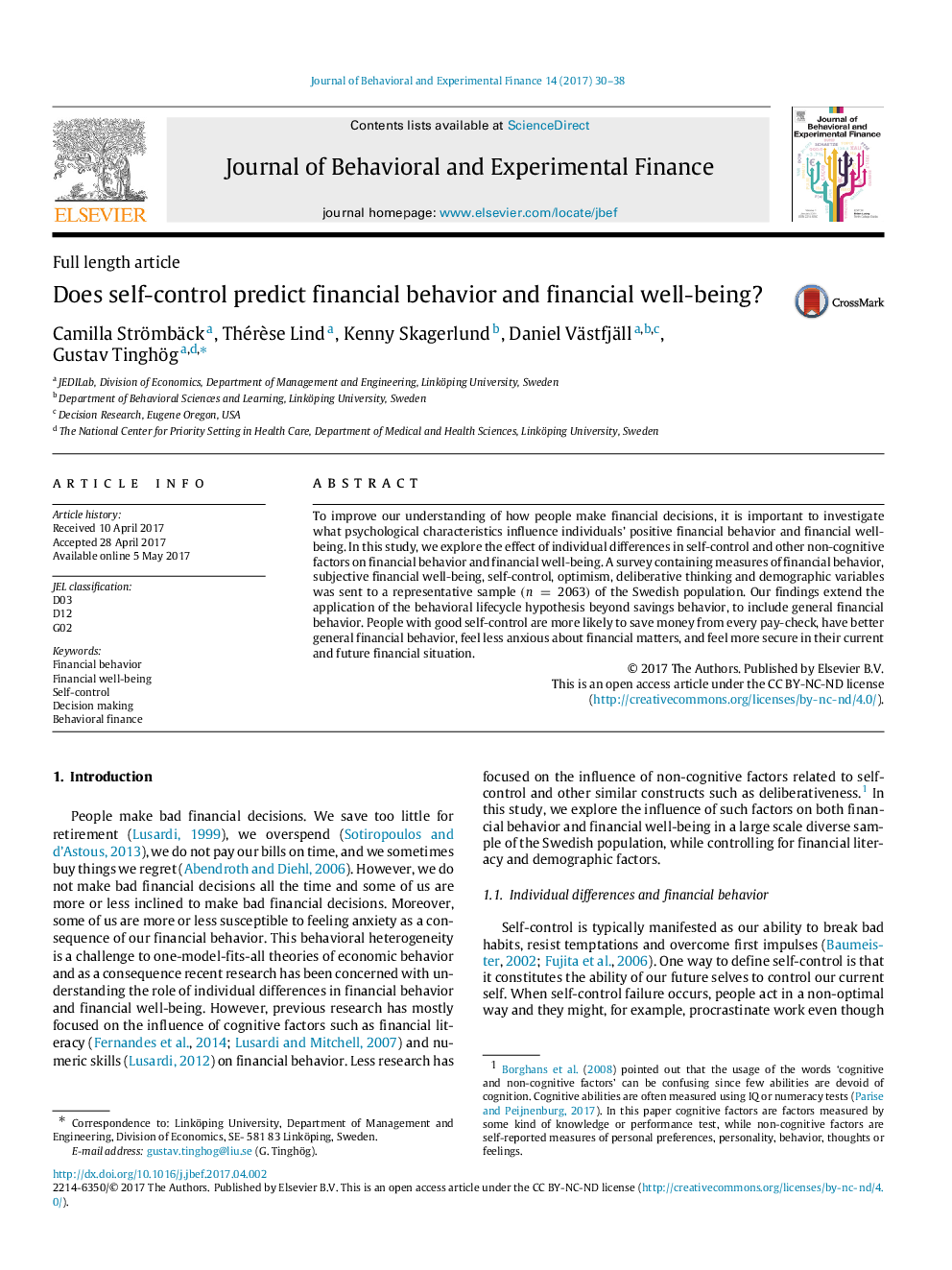| Article ID | Journal | Published Year | Pages | File Type |
|---|---|---|---|---|
| 5042449 | Journal of Behavioral and Experimental Finance | 2017 | 9 Pages |
To improve our understanding of how people make financial decisions, it is important to investigate what psychological characteristics influence individuals' positive financial behavior and financial well-being. In this study, we explore the effect of individual differences in self-control and other non-cognitive factors on financial behavior and financial well-being. A survey containing measures of financial behavior, subjective financial well-being, self-control, optimism, deliberative thinking and demographic variables was sent to a representative sample (n=2063) of the Swedish population. Our findings extend the application of the behavioral lifecycle hypothesis beyond savings behavior, to include general financial behavior. People with good self-control are more likely to save money from every pay-check, have better general financial behavior, feel less anxious about financial matters, and feel more secure in their current and future financial situation.
